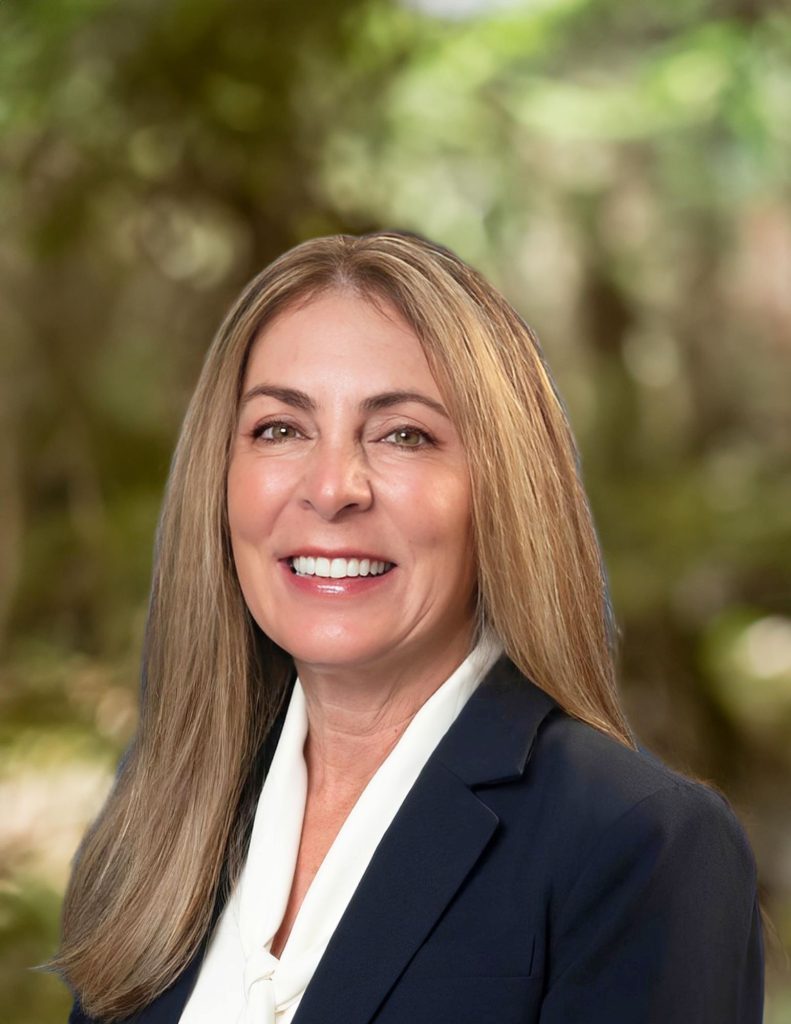More than halfway through the legislative session that ends May 2, Tallahassee continues to come after Florida’s cities.
Most notably, legislators want to make it harder for local governments to oppose multi-family residential projects under the 2023 Live Local Act. The Legislature passed it in response to the state’s affordable housing crisis, which is especially acute in South Florida.
Cities such as Boca Raton, however, pushed back, seeking to retain as much control as possible over potentially controversial development. Live Local awards tax breaks to projects in which at least 40% of the units are classified as affordable. Those can be in areas zoned industrial, but the unresolved issue in Boca Raton is whether Live Local projects can go next to single-family neighborhoods.
House Bill 943 is drawing the most opposition from the Florida League of Cities. According to the group’s analysis, the bill “could mean huge apartment buildings or mixed-use in quiet neighborhoods, even when they don’t make sense.” In addition, the league says, HB 943 could provide a loophole to allow intense development on land zoned for religious use, even if an owner sought that designation just to get a project approved.
Elected officials in Boca Raton and Delray Beach also have warned about Senate Bill 184. It would require cities and counties to allow accessory dwelling units—sometimes called “granny flats”—in single-family neighborhoods. Under current law, cities can create such ordinances, but only if they choose to do so.
Behind these bills, including one that increases tax breaks for affordable housing projects, is Tallahassee’s attempt to get around inevitable local opposition to multi-family projects that can fill the housing gap. We saw such opposition most recently in southwest Boca Raton. Neighbors blasted a four-townhouse development on commercial land. And that wasn’t even an affordable project; units would have sold for $2 million.
I’ll have more as the bills move through committee. I would expect them to pass, but the question is in what form.
New bill would limit power of CRAs
Tallahassee also is targeting community redevelopment agencies. Senate Bill 1242 would prohibit CRAs from approving new projects or issuing new debt after Oct. 1.
That restriction would hit the Delray Beach CRA particularly hard. Unlike in Boca Raton, the agency regularly buys property and seeks to redevelop it, under the CRA’s mission of eradicating blight. The CRA boundaries also are much larger, covering 20% of the city. In Boca Raton, the CRA includes only downtown.
“It definitely would not be good for Delray Beach,” said CRA Executive Director Renee Jadusingh. Opposition, she said, stretches “from the Panhandle to here.” She hopes that an amendment will make the bill less restrictive or at least provide “clarification” on which projects would be affected.
In 2019, the Legislature restricted how CRAs could spend money. In response, Delray Beach has moved CRA spending on non-profit groups such as Arts Garage to the city budget.
During Monday’s Boca Raton City Council workshop meeting, members criticized SB 1242. Since its creation in 1980, the CRA has spent a lot on public works improvements.
Though the bill requires all CRAs to go out of existence by 2045, that language would not affect either Boca Raton or Delray Beach. Their CRAs are already set to expire before then.
A few CRAs in Florida have drawn attention because of their problems. Tallahassee’s response is to potentially penalize all CRAs, regardless of the consequences.
Legislature and Gov. DeSantis at odds over tax issue
Finally, there’s the most serious issue for cities: changes to Florida’s tax structure. For now, it seems unresolved because of differences between the Legislature and Gov. Ron DeSantis.
Senate Bill 852, which would commission a study into eliminating property taxes, is not moving. There also is no House companion bill. DeSantis has called for elimination.
Meanwhile, House Speaker Daniel Perez wants to lower the sales tax from 6% to 5.25% but end the annual sales tax holidays for such purchases as back-to-school items. Eliminating property taxes would require raising the sales tax, so Perez and DeSantis are working at cross purposes.
Senate President Ben Albritton is uncommitted as the House, under Perez, takes a more confrontational attitude toward the lame-duck governor. Cities and school districts likely hope that nothing happens. Even a small change to the sales tax could ripple through local budgets.
FAU to pay student athletes $10 million over next three years

Adam Hasner promised that as president of Florida Atlantic University he could raise a lot of money. His work starts now.
The American Athletic Conference, to which FAU belongs, has agreed that member schools will pay $10 million over the next three years to athletes over and above their scholarships. The plan is the AAC’s role in settling the $2.8 billion nationwide lawsuit over revenue sharing with athletes.
Conference officials are allowing each school to determine how much it will spend each year and how it will apportion the money. Because football generates between 60% and 80% of athletic department revenue, it is expected that a similar percentage will go to football players.
This money is in addition to what FAU athletes receive in name, image and likeness (NIL) money. Because the AAC is a lower tier conference, the annual payments will be lower. Large schools can spend as much as $20.5 million a year. The settlement also will set roster limits for teams for the first time.
FAU’s current athletic budget is $35.5 million for 19 teams. I have made several requests to speak with Athletic Director Brian White; I’ll have more if we connect.
Proposed development in West Boca goes before council
Despite the angst in Boca Raton over residential development in older areas east of Interstate 95, there’s little controversy over projects in newer, western areas. One of them is on tonight’s city council agenda.
It’s at 791 Park of Commerce Blvd., near Congress Avenue and Yamato Road. The applicant wants a site plan change to allow demolition of part of the existing office building and add 243 residential units in an eight-story building. In addition, the applicant would convert one floor into a “sports garden” open to the public. It would feature racket sport courts, mini-golf and climbing walls, among other things.
The Planning and Zoning Board recommended approval. Staff also recommends approval.
Boca Council to resume discussion on proposed ER
Another item on tonight’s agenda is held over from the council’s last meeting.
It’s the proposal for a free-standing emergency room at 1001 East Telecom Drive, just east of the Boca Raton Innovation Campus (BRiC). Council members heard three hours of discussion on March 18 before deciding to postpone a decision. Only Councilmember Andy Thomson wanted the council to decide.
Supporters say the community needs such facilities. Nearby property owners say the project would cause traffic problems because the roughly 11,000-square-foot facility would be too big for the location.
The planning and zoning board approved the project, 4-1. This is an appeal of that decision, as the law allows.
Delray to discuss new fire-rescue contract
The Delray Beach City Commission will hold another budget workshop today, and there’s a proposal to deal with one of the biggest budget issues for next year.
That would be implementation of the fire-rescue contract that changes shifts from 24 hours on and 48 hours off to 24 and 72. It will require 21 more firefighters for the 2025-26 budget.
According to Fire Chief Ronald Martin, the department can use $500,000 in unspent money from staff vacancies to hire 15 firefighters in the current budget, which ends Sept. 30. Martin said those hires will make the transition happen sooner. Paying those new salaries for the full year is the next challenge.
Delray to consider no longer hosting Pride Festival

At today’s regular meeting, the commission will consider removing the annual Pride Festival from the list of city-sponsored events.
Delray Beach has staged the festival since 2021, when the city dedicated the LGBTQ Pride intersection in Pineapple Grove. The intersection has been vandalized twice by drivers burning tires across it.
According to the memo from Assistant City Manager Jeff Oris, “Members of the city commission have enquired (sic) as to the potential to not host” the event. The city sponsors 21 events each year, from holiday parades to the green market. Only the commission can change the list.
The memo offers no reason for the discussion. In recent years, the Republican-led Legislature and DeSantis have targeted what they perceive to be any diversity, equity and inclusion (DEI) policies at all levels of government.
I’ll have more after the meeting.
A bizarre move by Delray Commissioner Juli Casale

City Commissioner Juli Casale continues her odd practice of trying to make Delray Beach look bad.
The Palm Beach County Office of Inspector General plans to audit police overtime in Delray Beach. An editorial (“A much-needed probe of police overtime in Delray”) in the South Florida Sun Sentinel—which regularly amplifies every Casale gripe—made it appear that the office had singled out Delray Beach. “The audit will, at long last, shine a bright light on a persistent problem,” the Editorial Board wrote.
“Casale said police overtime was so ‘extremely excessive’ that it was physically impossible for some cops to have put in as many hours as they claimed.
“Casale spoke up. But until the inspector general intervened, absolutely nothing happened.”
One reasonably can assume that Casale presented the audit to the Sun Sentinel as an indictment. In fact, the office conducts such audits regularly as part of its mission to scrutinize public spending and offers suggestions. As City Manager Terrence Moore noted in his Friday information letter, the audit “is not a function of any specific complaint.” The office conducts six to eight such exercises each year across the county.
The audit comes as the city and police union are at impasse over a contract. The union twice has backed Casale’s opponents. Moore said the city will “implement any recommendations” from the audit.







